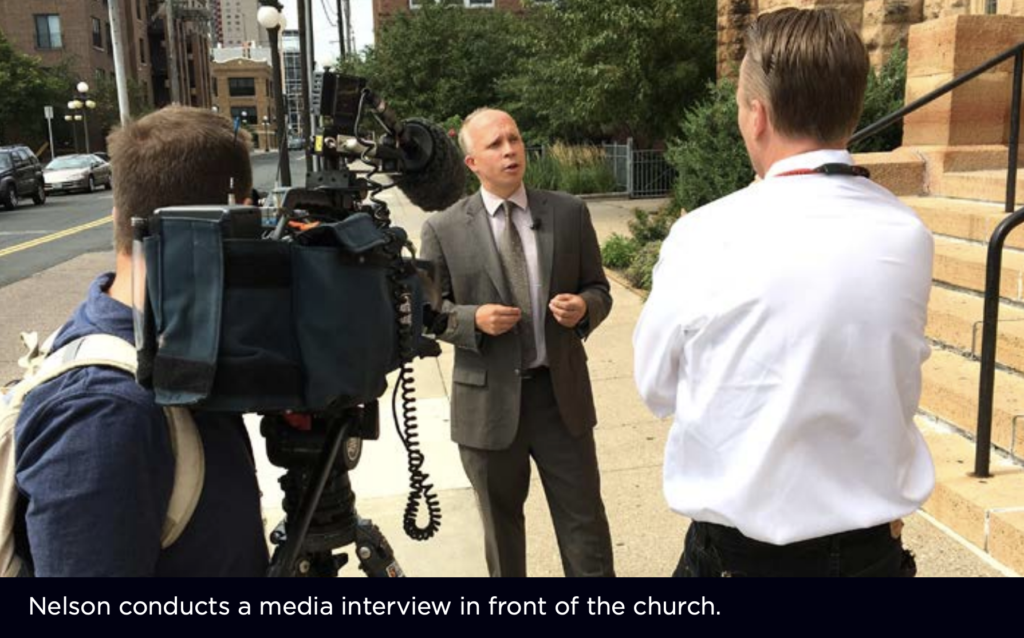It’s called a tax
CAE’s Nelson calls on Saint Paul to eliminate a revenue-producing fee that circumvents limits on taxation
Center of the American Experiment’s Peter Nelson used an op/ed in the Pioneer Press to demand that the City of Saint Paul eliminate a Right of Way (ROW) fee it has assessed to pay for road maintenance.
The call was made after the Minnesota Supreme Court issued a landmark ruling that declared a fee charged by the City of Saint Paul to fund road maintenance was, in fact, a tax and, therefore, subject to the state constitution’s limitations on taxation. Fees have become popular ways for municipalities to raise revenue quietly, because they are less regulated than taxes.
The case was brought by two churches, the First Baptist Church of St. Paul and the Church of St. Mary, that had been paying excessive and unfair fees. Nelson filed an amicus brief on behalf of the churches.
Nelson, a vice president and senior policy fellow at CAE, coauthored the piece with Rinal Ray, deputy public policy director for the Minnesota Council of Nonprofits, who also filed an amicus. “St. Paul should follow the law, as set out by the clarifying opinion of the Minnesota Supreme Court,” they wrote, “and raise the resources to support city services with property taxes, rather than with unconstitutional fees.” The City of Saint Paul is currently finalizing its 2017 budget.
The constitution requires taxes to fund public purposes, Nelson said. “If you call it a fee, you can charge everyone, including churches and other non-profits, who are exempt from taxes.” Fees also evade uniformity requirements that require assessments to equal the benefit that the property owner received, Nelson added, which is usually defined as an increase in the property value. “In this case there is no increase in the property value, because the city is going to plow your road, anyway.”
“This isn’t just the law, it is good policy,” Nelson and Ray wrote.
They argued that the ROW assessment was not equitably levied. While the churches paid $15,000, the owners of the 25-story UBS Plaza paid only $5,000. “The Constitution requires taxes to be used for funding public purposes, they said. “The Supreme Court found that well-maintained streets benefit the broader public, not only the assessed property owner.”
On top of that, forcing the churches to pay the ROW assessment reduced their ability to provide food, shelter, clothing, education, or support to people in our communities who need it, they said.
Nelson had earlier pointed out that city officials frankly admitted that “the changes in the ROW assessment since 2003 were all a result of policymaker wishes to control the growth of property taxes.”
The case was initiated five years ago by Jack Hoeshler, a retired St. Paul attorney who has worked the case as a volunteer. Henshler says that CAE’s involvement alongside the Minnesota Council of Nonprofits, gave the case the gravitas it needed. “Before that,” he said, “the city always treated us like two little whiny churches in Lowertown who didn’t want to pay their fair share.”
